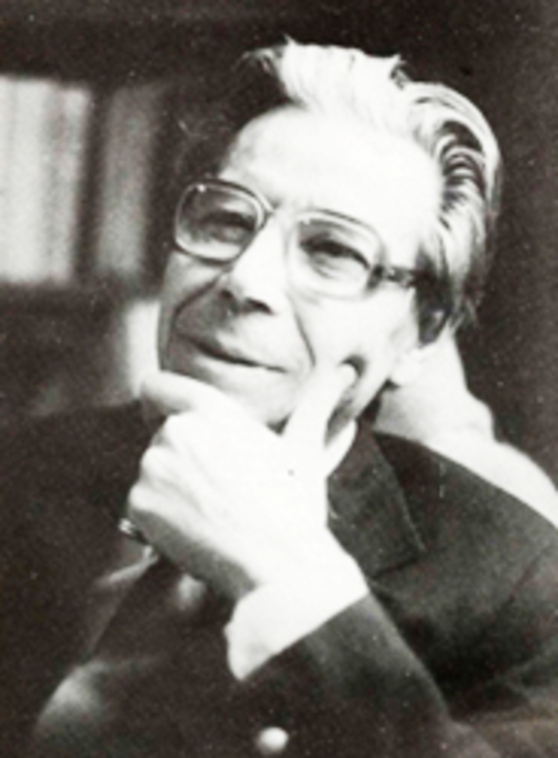
Fund Prof. Georgi Mihailov
Fund №5 Prof. Georgi Mihailov
He was born in Sliven on October 19, 1915. As early as his early childhood, his family moved to Sofia, where in 1934 he completed his secondary education - in the classical department of the First Men's High School. In 1938 he graduated with full honors at "classical philology " at Sofia University “St. Kliment of Ohrid". After graduation, he specialized for one year at the Sorbonne and at the Oriental Languages School in Paris. In 1940 he was appointed at the position of Curator of the Ancient department of the National Archaeological Museum in Sofia. At the beginning of 1941 he became an assistant to Professor Alexander Balabanov at the Department of Classical Philology at Sofia University “St. Kliment of Ohrid", where he worked for the rest of his life, going through all the stages of his scientific career - Senior Assistant (1947), Assistant Professor (1957), Professor (1963).
In the versatile teaching and scientific activity of G. Mihailov the greatest share is the ancient Greek epigraphy. In this field he created fundamental scientific works, with which he has won great international prestige and a number of awards.
Mihailov joined the founding of the International Association for Greek and Latin Epigraphy in 1972, when he was elected Chairman of its Organizing Committee, and from 1977 until his death, its President.
He also made a significant contribution to the development of Bulgarian Thracology, which can be seen from the summarizing work of the Thracians, which came out in 1972. He is also a member of the editorial staff of Volume I of Sources on the History of Thrace and Thracians.
An important part of the creative activities of G. Mihailov are the translations, among which are the Platonic dialogues, translated in Bulgarian, the tragedy "Troyanki" by Euripides, "History of Ancient Literature" by I. M. Tronsky.
He died in Sofia on November 21, 1991.
The archive of Prof. Georgi Mihailov was added to the archive funds in the University Archive in 2000 as a donation from his wife, Mrs. Slava Mihailova.
In the section "Biographical Materials", special emphasis can be placed on the students notes of G. Mihailov from the lecture courses of professors Alexander Balabanov ("The Origin and Development of Comedy from Beginning to Menander") and Veselin Beshevliev ("Types of Ancient Greek Syntax").
Particularly voluminous is the part of the archival heritage of Prof. G. Mihailov, which relates to his research, translation and teaching activities. To one degree or another, each of the phases through which the creation of his remarkable works on ancient history, Thracology and epigraphy ("Greek Inscriptions Found in Bulgaria", "Thracians", "Thracian Epigraphics" can be traced individually , The "West Pontian Coinon" and many others). There is also a typewritten copy of each other, also a significant work of G. Mihailov - "Classical Epigraphy". A significant share of the papers in this section are the reports, with which the authoritative Bulgarian scientist presents himself at important national and international scientific forums. The texts (drafts and whites) of the translations of Plato's Dialogues and of "Trojans" from Euripides also play a significant role. The fund also includes a considerable number of reviews, reviews, opinions of our eminent philologist for dissertation works, monographs in the field of ancient history, encyclopedias and more.
Directly related to the purely research work of G. Mihailov is his official and public activity. His involvement in the implementation of a number of projects nationally and internationally (such as the establishment and development of the International Association of Greek and Latin Epigraphics) has been documented by plans, programs, proposals, reports, and extensive correspondence with renowned Bulgarian and foreign researchers.
Of interest are the photographs on which the image of G. Mihailov from his earliest childhood to adulthood is imprinted, in various situations - in a family environment, with classmates and fellow students, with friends and colleagues, during scientific and public gatherings and others.
